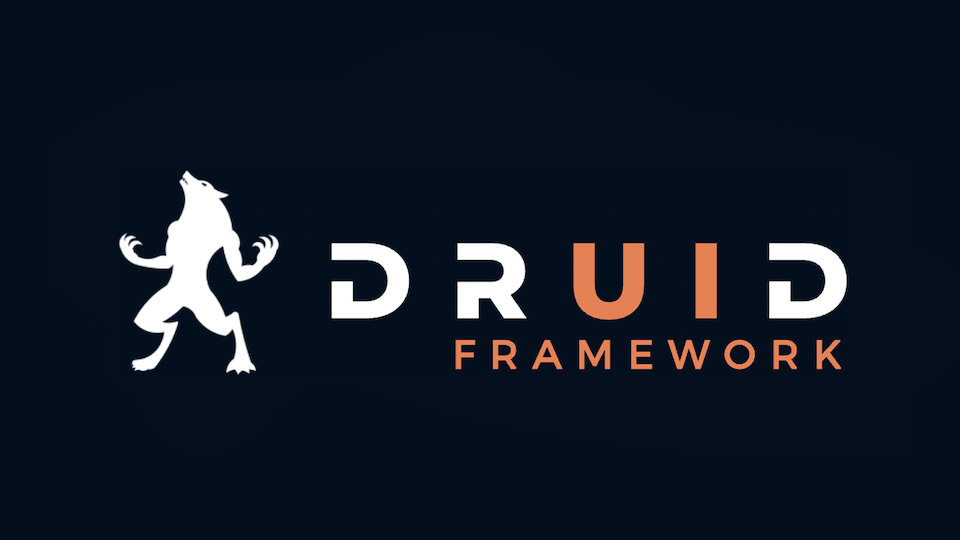Druid - powerful Defold component UI library. Use basic and extended Druid components or make your own game-specific components to make amazing GUI in your games.
Overview
Setup
Dependency
You can use the Druid extension in your own project by adding this project as a Defold library dependency. Open your game.project file and in the dependencies field under project add:
Druid v0.10.3
https://github.com/Insality/druid/archive/refs/tags/0.10.3.zip
Here is a list of all releases.
Input Bindings
Druid uses /builtins/input/all.input_binding input bindins. For advanced setup see the Input Binding section in Advanced Setup.
Usage
Here only basic usage. How to read this doc. Annotations. Example of advanced usage - different doc. Example of custom components - different doc.
Components
Here is full Druid components list:
Basic Components
| Name | Description | Example | Preview |
|---|---|---|---|
| Button | Basic input component. Handles all types of interactions: click, long click, hold click, double click, etc | Button Example |  |
| Text | Wrap on GUI text node, handle different text size adjusting, providing additional text API | Text Example |  |
| Scroll | Scroll component | Scroll Example |  |
| Blocker | Block user input in node zone area | ❌ | |
| Back Handler | Handle back button (Android back button, backspace key) | ❌ | |
| Static Grid | Component to manage node positions with equal sizes | Static Gid Example | 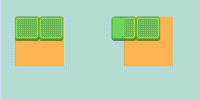 |
| Hover | Handle hover node state on node | ❌ |  |
| Swipe | Handle swipe gestures on node | Swipe Example | 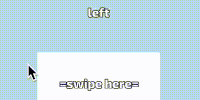 |
| Drag | Handle drag input on node | Drag Example | 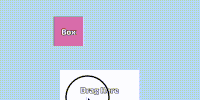 |
Extended components
Extended components before usage should be registered in Druid with
druid.register()function.
| Name | Description | Example | Preview |
|---|---|---|---|
| Checkbox | Checkbox component | Checkbox Example |  |
| Checkbox group | Several checkboxes in one group | Checkbox group Example | 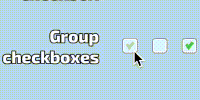 |
| Radio group | Several checkboxes in one group with a single choice | Radio Group Example |  |
| Dynamic Grid | Component to manage node positions with different sizes. Only in one row or column | Dynamic Grid Example | 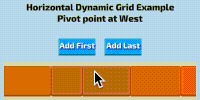 |
| Data List | Component to manage data for huge datasets in scroll | Data List Example | 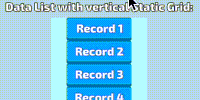 |
| Input | User text input component | Input Example | 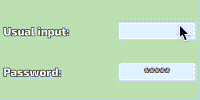 |
| Lang text | Wrap on Text component to handle localization | ❌ |  |
| Progress | Progress bar component | Progress Example |  |
| Slider | Slider component | Slider Example | 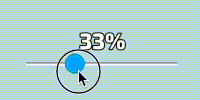 |
| Timer | Handle timers on GUI text node | ❌ | 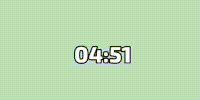 |
| Hotkey | Handle keyboard hotkeys with key modificators | Hotkey Example | 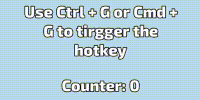 |
| Layout | Handle node size depends on layout mode and screen aspect ratio | Layout Example |  |
For a complete overview, see: components.md.
Basic usage
To use Druid, first you should create a Druid instance to spawn components and add Druids main engine functions: update, final, on_message and on_input.
All Druid components take node name string as arguments, don't do gui.get_node() before.
All Druid and component methods are called with : like self.druid:new_button().
local druid = require("druid.druid")
local function button_callback(self)
print("Button was clicked!")
end
function init(self)
self.druid = druid.new(self)
self.druid:new_button("button_node_name", button_callback)
end
function final(self)
self.druid:final()
end
function update(self, dt)
self.druid:update(dt)
end
function on_message(self, message_id, message, sender)
self.druid:on_message(message_id, message, sender)
end
function on_input(self, action_id, action)
return self.druid:on_input(action_id, action)
end
For all Druid instance functions, see here.
Druid Events
Any Druid components as callbacks use Druid Events. In component API (button example) pointed list of component events. You can manually subscribe to those events with the following API:
-
event:subscribe(callback)
-
event:unsubscribe(callback)
-
event:clear()
You can subscribe several callbacks to a single event.
Druid Lifecycle
Here is full Druid lifecycle setup for your *.gui_script file:
local druid = require("druid.druid")
function init(self)
self.druid = druid.new(self)
end
function final(self)
self.druid:final()
end
function update(self, dt)
self.druid:update(dt)
end
function on_input(self, action_id, action)
return self.druid:on_input(action_id, action)
end
function on_message(self, message_id, message, sender)
self.druid:on_message(message_id, message, sender)
end
- final is a required function for a correct Druid lifecycle
- on_input is used in almost all Druid components
- update in used in progress bar, scroll and timer base components
- on_message is used for specific Druid events, like language change or layout change
It is recommended to fully integrate all Druid lifecycles functions.
Details
- Druid input goes as stack. Last created button will checked first. So create your GUI from back
- Don't forget about
returninon_input:return self.druid:on_input(). It is needed if you have more than 1 acquire inputs (several Druid, other input system, etc) - By default, Druid will automatically acquire_input_focus. So you don't need do it manually. But only if you have components which require on_input
- If you want to delete a node which has a Druid component, don't forget to remove it via
druid:remove(component)
Examples
See the example folder for examples of how to use Druid
Try the HTML5 version of the Druid example app
Documentation
To better understand Druid, read the following documentation:
You can fund the full Druid documentation here: https://insality.github.io/druid/
License
Issues and suggestions
If you have any issues, questions or suggestions please create an issue or contact me: insality@gmail.com
❤️ Support project ❤️
Your donation helps me stay engaged in creating valuable projects for Defold. If you appreciate what I'm doing, please consider supporting me!
